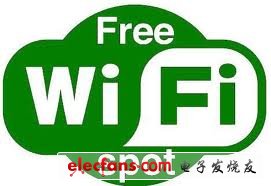According to recent news, according to foreign media reports, WiFi service is rapidly becoming an important part of the network strategy of broadband service providers. But how long can the good days of free WiFi last? This is a huge question mark. Network operators have hinted that they want to generate more revenue from their WiFi networks.
Network operators want to charge for WiFi
According to the latest statistical report released by market research company Analysys Mason, more and more wireless and cable operators are now deploying WiFi networks. However, many of these service providers have regarded the WiFi network currently provided to users free of charge as their future revenue-generating assets.

The statistics report stated that most (89%) broadband service providers have deployed WiFi networks to divert their wireless traffic or expand their services. 40% of service providers said that they believe that WiFi is not only a means of diverting and clearing congested networks, but also a means of providing value-added services to its users.
Many operators have now started to make money from their WiFi networks. In fact, according to the above statistical report, 57% of service providers with WiFi networks stated that they have started to make money from WiFi networks in some form.
To date, no large (cable or wireless) service providers have indicated that they will charge for their WiFi networks. However, as network operators increasingly regard WiFi networks as their strategic resources and add various authentication and security services, people have speculated that service providers may be brewing to charge fees or add restrictions to WiFi networks.
For example, AT & T provides thousands of unlimited free WiFi hotspots in the United States, and added free roaming services to the "International Data Plan." However, unlike the practice in the United States, AT & T has set a data traffic limit of 1G per month for international roaming WiFi networks.
To be fair, users of the AT & T International Data Program can now get an additional 1G of data usage at a price of $ 60, while previously these users could only get 300M of mobile data usage at the same price. However, AT & T ’s practice of setting a 1G traffic limit on WiFi networks shows that the company has regarded WiFi networks as something of value, not just a tool for offloading mobile data traffic.
The company did not say that it will change its policy on the US WiFi network. However, wireless operators have historically been keen to modify service plans to allow users to pay more for the services they use.
It ’s not easy to get users to pay
"People need to understand that the price of wireless carriers' services is constantly changing," said Chris Nicoll, chief analyst at Analysis Mason. "We have seen this on mobile networks. Early data The service plan charges for wireless data is very low, and does not set any restrictions. After users gradually develop data usage habits, they began to adopt a hierarchical plan or multi-device plan to limit. "
However, David Reeder, vice president of Accuris Networks, said it was not easy to make users pay for WiFi networks. The company is providing AT & T with certification services to enable international roaming of WiFi networks.
Reed said that as a short-range wireless technology, the inherent limitations of the WiFi network make it difficult to provide continuous high-quality services. "Compared to mobile networks, it is difficult to provide quality services in a WiFi network environment." He said, "I don't think it can be the same as a wireless network. Wireless operators also recognize this."
On the contrary, Nickel of Analysis Mason believes that wireless operators will take more creative methods to make money from WiFi networks. "Profit does not mean charging users more fees." He said.
For example, NIKKOR believes that wireless operators can collect data from WiFi access endpoints and sell them to advertisers or marketers. He said that the geographic location information collected from WiFi hotspots may be more valuable than the user information currently collected by wireless operators from their cell phone towers. The reason is that the WiFi hotspot has a smaller radiation radius, so it can more accurately determine the location of the user. This makes it easier for certain retailers in hypermarkets to send advertisements and offers to users who pass by outside their stores. Network equipment manufacturer Cisco has added such analysis capabilities to its access endpoint devices.
Of course, WiFi users will have to participate in such a plan. But Nickell said that even if the collected WiFi usage information does not involve specific user information, it is also of great significance to marketers.
Although wireless operators use unauthorized wireless spectrum to provide WiFi services, and the equipment they use to build these WiFi networks is relatively cheap compared to mobile network devices, the cost of providing a powerful and stable WiFi network is Not to be underestimated. "Although the spectrum is free, there are many follow-up costs." Nickel said.
In fact, data repeaters used to connect WiFi hotspots to wireless operators' core networks are not cheap. Nichol also admitted that wireless operators may charge higher fees for WiFi networks. However, he said network operators are more likely to look for other ways to make money.
"Wireless operators understand that their users are not a bottomless hole that can continue to generate revenue." He said, "Users have a bottom line in their minds about how much to pay for this kind of service. And now, they have provided data services. A lot of fees were paid. "
a thing that joins together two parts of sth, two vehicles or two pieces of equipment.

Custom Coupling,Coupling Of Encoders,Useful Coupling,Latest Coupling
Yuheng Optics Co., Ltd.(Changchun) , https://www.yhencoder.com
